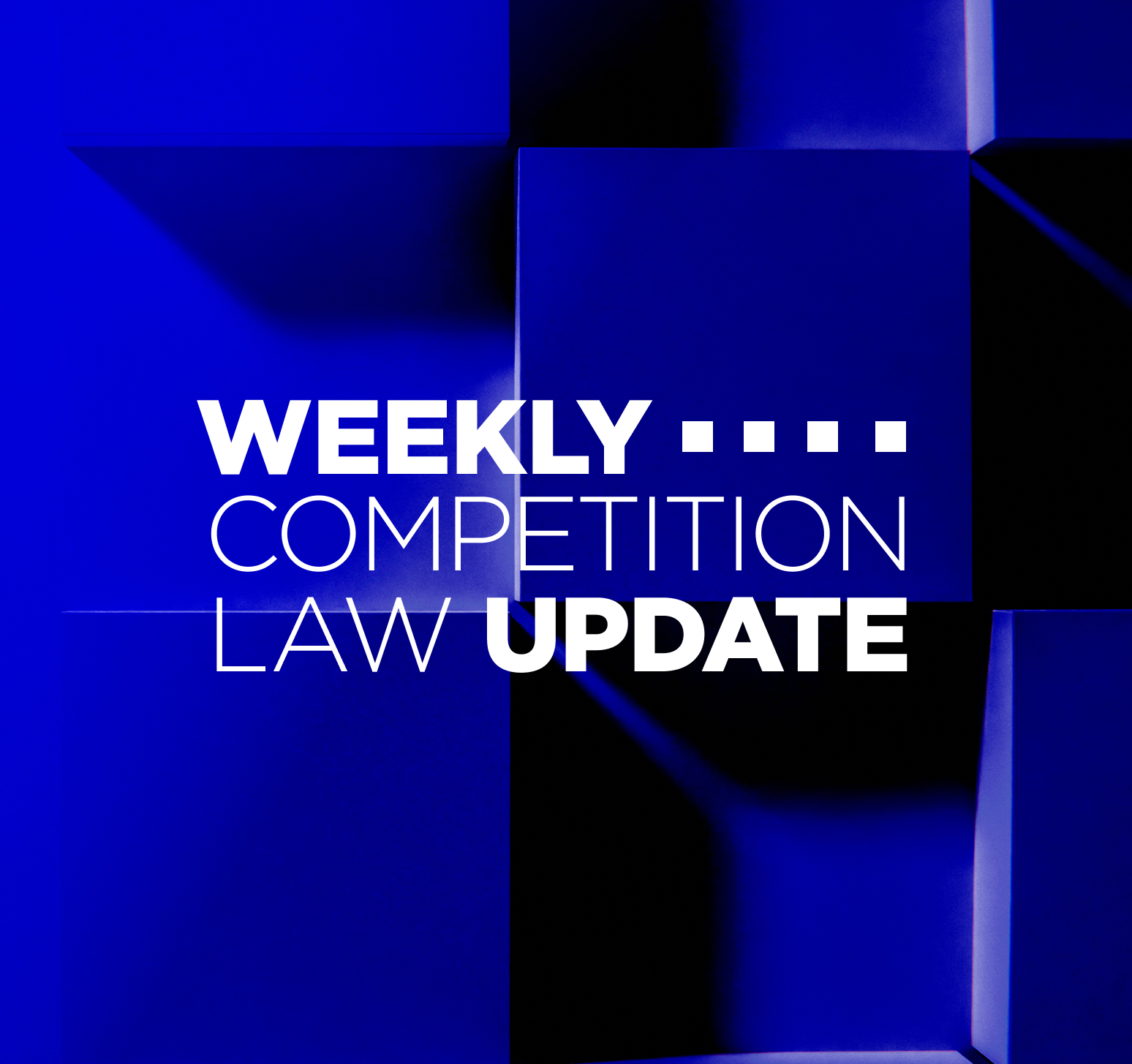Competition Law Insights
Significant Turkish Constitutional Court Decision: Turkish Competition Authority’s On-Site Inspection Without a Prior Judge Order is a Violation of Right to Residential Immunity

The Turkish Constitutional Court (the “TCC”), in its individual application decision Ford Otomotiv Sanayi Anonim Şirketi (“Ford”), decided that the Turkish Competition Authority’s (the “TCA”) on-site inspection without a prior judge order violated the right to residential immunity guaranteed under the Turkish Constitution (“TCC Decision”). We wanted to share our evaluations regarding this decision, which has caused a lot of debate and has also led to some ‘misunderstandings’.
First and foremost, we would like to point out that. this decision does not result in the annulment of TCA’s authority to pursue on-site inspections, as the individual application decisions of the TCC primarily have subjective effects (inter partes). Thus, Article 15 of the Law on the Protection of Competition (the “Competition Law”) foreseeing that the TCA is entitled to “perform on-site inspection of any assets of undertakings” is still in force.
The question of whether the TCC Decision will impact the ongoing and subsequent inspections is currently uncertain. Both the TCA and the Council of State may act or make decisions in consideration of the TCC Decision. However, it should be noted that there is no explicit norm foreseeing such an impact of individual application decisions by the TCC. In the current practice of the TCA, it is observed that the TCC Decision has not – for now – led to any changes, and the practice before the TCC Decision continues unchanged.
It is possible for the Turkish Grand National Assembly (the “Turkish Parliament”) to amend Article 15 of the Competition Law, which grants on-site inspection authority to the TCA, in accordance with the justifications of the TCC Decision. Alternatively, the TCC may annul this article if it finds an opportunity to pursue a concrete constitutional review.
The Legal Dispute
The Turkish Competition Board (the “Board”), as part of a preliminary investigation into whether Ford violated the CompetitionLaw, conducted an on-site inspection at Ford premises and obtained certain documents including emails from computers, as per the authority granted by Competition Law. Following the preliminary investigation, the Board initated a full-fledged investigation into various undertakings, including Ford, and as a result of such investigation, it decided to impose an administrative fine on Ford. Ford filed an annulment lawsuit for the administrative fine before the 13th Chamber Council of State which dismissed the case. The subsequent appeal was also dismissed by the Plenary Session of the Chambers for Administrative Cases of the Council of State.
Ford additionally pursued an individual application to the TCC where it alleged that its right to residential immunity had been violated due to the unlawfulness of the on-site inspection pursued at its workplace.
The on-site inspection authority of the Board is granted with Article 15 of the Act, which establishes that it “may perform examinations at undertakings and associations of undertakings in cases it deems necessary. To this end, it is entitled to a) Examine the books, all types of data and documents of undertakings and associations of undertakings kept on physical or electronic media and in information systems, and take copies and physical samples thereof […] c) Perform on-site examination of any assets of undertakings […]”
The Decision of the Turkish Constitutional Court
Article 21 of the Turkish Constitution guarantees that the residence of an individual shall not be violated and unless there exists a decision duly given by a judge on certain grounds, no domicile may be entered or searched or the property seized therein. This article also foresees that where the delay is prejudicial, a written order of an agency authorized by law may be deemed sufficient. This order should be submitted for the approval of the judge within 24 hours.
According to the TCC, the office where a person pursues his or her profession, the registered office of a company run by private persons, and the registered office, branches and other workplaces of legal persons may benefit from the residential immunity. The TCC, while noting that public areas of workplaces that do not contain privacy elements and are accessible to all may not be considered residences, has considered . areas where the TCA conducted on-site inspections and areas where management activities of undertakings are carried out, as well as working rooms that are not freely accesble to everyone, as “residential” areas. In this respect, the TCC decided that the on-site inspection conducted by the TCA at Ford premises constituted an interference with the right to residential immunity.
The TCC later established that the on-site inspection authority grants competition experts to pursue on-site inspections at the residences of the company and such authority is not limited to cases where the delay is prejudicial. Here the TCC stipulated that even for scenarios where the delay is prejudicial, the Competition Law does not foresee an obligation of the TCB to submit the TCB order for the approval of the judge within 24 hours; which the TCC determined that is not in accordance with article 21 of the Turkish Constitution.
Accordingly, the TCC elaborated that TCA’s on-site inspection authority is not regulated in accordance with the safeguards of the Turkish Constitution and found a violation of the right to residential immunity with respect to the on-site inspection conducted by the TCA at Ford premises. The TCC further decided to submit its decision to the Turkish Parliement for reference.
It is noteworthy to state that the constitutional review of this authority and the TCB decision were not limited to the right to residential immunity. The TCC also pursued a review with regard to the right to property, discrimination based on the right to property, and the right to a fair trial. Yet, the TCC did not decide on the violation of these rights.
Looking Ahead
The individual application decisions of the TCC do not result in the annulment of Article 15 of the Competition Law and thus this provision entitling the TCA to “perform on-site inspection of any assets of undertakings” is still in force.
The individual application decisions of the TCC primarily have subjective effects (inter partes), meaning that they have an impact on the parties and authorities involved. Accordingly, the question arises as to whether the TCA and the Council of State should consider this decision for their ongoing or future on-site inspections. In literature and judicial decisions, it is generally accepted that considering individual application decisions for similar disputes would be in line with the rule of law guaranteed under the Turkish Constitution. On the other hand, as there are no explicit provisions foreseeing such an obligation, there exist opposite views arguing that the agencies (e.g. TCA) can continue acting in accordance with the act itself. It is seen in practice that the TCA continues to pursue on-site inspections without obtaining a prior judge order, given that there have been no legislative amendments. How the Council of State will respond to these practices is uncertain.
It is eagerly anticipated whether the Turkish Parliament will amend Article 15 of the Competition Law in line with the TCC Decision when the new legislative term begins on October 1, 2023. The scope and framework of any potential changes will will also ge of great interest.
It is also noteworthy that Article 15 of the Competition Law can be brought before the TCC by resorting to concrete constitutional review and claiming the unconstitutionality of the relevant article. Any interested person (e.g. a company facing an administrative fine upon on-site inspection) who files a cancellation lawsuit requesting the annulment of the administrative decision (e.g. the administrative fine decision) before the Council of State may claim unconstitutionality of the Competition Law. Upon such claim, or if the Council of State itself finds it unconstitutional, the Council of State may submit this request to the TCC, which can pursue a concrete constitutional review. Here, the TCC may consider to annul the on-site inspection authority in Article 15 of the Competition Law.
In conclusion, while uncertainties persist regarding how the Council of State, and the Turkish Parliement will approach the TCC Decision or whether the TCC will annul the TCA’s on-site inspection authority, businesses, if they become subject to a potential on-site inspection by the TCA, should continue to act within the framework of the existing practices and adhere to all behavioral rules stipulated by the Competition Law and related secondary legislation to avoid potential sanctions for “obstructing an on-site inspection.
T.C. Anayasa Mahkemesi’nden Önemli Karar: Rekabet Kurumu’nun Hâkim Kararı Bulunmaksızın Yerinde İnceleme Yapması Konut Dokunulmazlığı Hakkının İhlalidir
T.C. Anayasa Mahkemesi (“AYM”), Ford Otomotiv Sanayi Anonim Şirketi (“Ford”) hakkında 23 Mart 2023 tarihinde verdiği bireysel başvuru kararında, Rekabet Kurumu’nun (“RK”) hâkim kararı olmaksızın yerinde inceleme yapmasının T.C. Anayasası’nda (“Anayasa”) güvence altına alınan konut dokunulmazlığı hakkını ihlal ettiğine karar verdi (“AYM Kararı”). Çok tartışma yaratan ve bazı “yanlış anlaşılmalara” da yol açmış olduğunu gördüğümüz bu karara ilişkin değerlendirmelerimizi bu yazımızda paylaşmak istedik.
Öncelikle belirtmek isteriz ki bu karar, bireysel başvuru kararlarının esas olarak sübjektif etkiye (inter partes) sahip olması nedeniyle RK’nın yerinde inceleme yetkisinin iptali sonucunu doğurmamaktadır. Dolayısıyla, 4054 sayılı Rekabetin Korunması Hakkında Kanun’un (“Rekabet Kanunu”) “teşebbüslerin her türlü mal varlığına ilişkin mahallinde incelemeler” yapma yetkisini öngören 15. maddesi halen yürürlüktedir.
AYM Kararı’nın mevcut ve gelecekteki denetimler üzerindeki etkisinin ne olacağı sorusunun cevabı ise şu an için belirsizdir. Hem RK’nın hem de Danıştay’ın bundan sonraki süreçte AYM Kararı’nı dikkate alarak hareket etmesi / karar vermesi mümkün olmakla birlikte AYM’nin bireysel başvuru kararlarının böyle bir etkisini öngören açık bir norm bulunmadığını da belirtmek gerekir. RK’nın mevcut uygulamasında da AYM Kararı’nın -şu an için- herhangi bir değişikliğe yol açmadığı; AYM Kararı öncesi uygulamanın aynen devam ettirildiği görülmektedir.
Türkiye Büyük Millet Meclisi’nin (“TBMM”) RK’ya yerinde inceleme yetkisi veren Rekabet Kanunu’nun 15. maddesini AYM kararının gerekçelerine uygun olarak değiştirmesi mümkündür. Ayrıca, AYM söz konusu madde itiraz yoluyla önüne gelirse, bu maddeyi gerçekleştireceği somut norm denetimi sonucunda da iptal edebilecektir.
Anayasa Mahkemesi Kararına Konu Hukuki Uyuşmazlık
Rekabet Kurulu’nun (“Kurul”), Ford’un Rekabet Kanunu’nu ihlal edip etmediğine ilişkin başlattığı bir önaraştırma kapsamında RK uzmanları, Kanun’un verdiği yetki uyarınca Ford’da bir yerinde inceleme gerçekleştirmiş ve epostalar da dahil olmak üzere bilgisayarlardan temin edilen birtakım belgeleri almıştır. Önaraştırma sonucunda Kurul, Ford’un da aralarında bulunduğu teşebbüsler hakkında bir soruşturma başlatmış ve soruşturma sonucunda Ford’a idari para cezası uygulanmasına karar vermiştir. Ford, idari para cezası için Danıştay 13. Dairesi nezdinde iptal davası açmış ve bu dava reddedilmiştir. Ardından yapılan temyiz başvurusu da Danıştay İdari Dava Daireleri Kurulu tarafından reddedilmiştir
Ford, işyerinde yapılan yerinde incelemenin hukuka aykırı olması nedeniyle konut dokunulmazlığı hakkının ihlal edildiğini iddia ederek AYM’ye de ayrıca bireysel başvuruda bulunmuştur
Rekabet Kanunu md. 15, Kurul’a “gerekli gördüğü hallerde, teşebbüs ve teşebbüs birliklerinde incelemelerde” bulunma yetkisi tanımaktadır. Bu amaçla Kurul, teşebbüslerin veya teşebbüs birliklerinin “a) defterlerini, fiziki ve elektronik ortam ile bilişim sistemlerinde tutulan her türlü verilerini ve belgelerini inceleyebilir, bunların kopyalarını ve fiziki örneklerini alabilir, […] c) teşebbüslerin her türlü mal varlığına ilişkin mahallinde incelemeler yapabilir.”
Anayasa Mahkemesi Kararı
Anayasa’nın 21. maddesi, kişinin konutuna dokunulamayacağını ve usulüne göre verilmiş hâkim kararı olmadıkça kimsenin konutuna girilemeyeceğini, konutunda arama yapılamayacağını ve buradaki eşyaya el konulamayacağını güvence altına almaktadır. Bu madde ayrıca, gecikmesinde sakınca bulunan hallerde, kanunla yetkili kılınmış merciin yazılı emrinin hâkim kararı yerine yeterli sayılabileceğini öngörmektedir. Bu emrin 24 saat içinde hâkimin onayına sunulması gerekmektedir.
AYM’ye göre “bir kişinin mesleğini sürdürdüğü bürosu, özel bir kişinin işlettiği şirketin faaliyetlerinin yürütüldüğü kayıtlı merkezi, tüzel kişilerin kayıtlı merkezleri, şubeleri ve diğer işyerleri” de konut dokunulmazlığından yararlanabilecektir. AYM, işyerlerinin mahrem bir unsur içermeyen ve herkese açık olan alanların konut olarak kabul edilmeyebileceğini belirtmekle birlikte, RK’nın yerinde inceleme gerçekleştirdiği, teşebbüslerin yönetim işlerinin yürütüldüğü kısımlar ile çalışma odaları gibi herkesin serbestçe giremediği alanları “konut” olarak değerlendirmiştir. Bu bakımdan AYM, RK’nın Ford’da gerçekleştirdiği yerinde incelemenin konut dokunulmazlığı hakkına müdahale teşkil ettiğine karar vermiştir
Bu gerekçeler doğrultusunda AYM, RK’nın yerinde inceleme yapma yetkisinin Anayasa’nın öngördüğü güvencelere uygun olarak düzenlenmediğini vurgulayarak; bu çerçevede Ford’da gerçekleştirilen yerinde incelemenin Anayasa’ya aykırı olduğuna ve konut dokunulmazlığı hakkının ihlal edildiğine karar vermiştir. AYM ayrıca kararın, Rekabet Kanunu’nun 15. maddesi hükmünün gözden geçirilmesi için TBMM’ye gönderilmesi gerektiğini belirtmiştir.
İfade etmek gerekir ki, Ford ayrıca mülkiyet hakkı, mülkiyet hakkıyla bağlantılı olarak ayrımcılık yasağı ve adil yargılanma hakkı bakımından da ihlal olduğunu iddia etmiş; fakat AYM bu iddiaları kabul etmemiştir.
Önümüzdeki Süreç
AYM’nin bireysel başvuru kararı, Rekabet Kanunu’nun 15. maddesinin iptali sonucunu doğurmamaktadır; dolayısıyla RK’nın “teşebbüslerin her türlü mal varlığına ilişkin mahallinde incelemeler” yapma yetkisini öngören madde halen yürürlüktedir.
Bu noktada, AYM’nin bireysel başvuru kararları temel olarak ilgili taraflar ve idareler üzerinde sübjektif (inter partes) bir etkiye sahip olduğundan RK ve Danıştay’ın mevcut veya gelecekteki yerinde incelemelerde bu kararı dikkate alıp almaması gerektiği sorusu ortaya çıkmaktadır. Literatürde ve yargı kararlarında, AYM’nin bireysel başvuru kararlarının benzer uyuşmazlıklar için dikkate alınmasının Anayasa’da güvence altına alınan hukuk devleti ilkesine uygun olacağı genel kabul görmektedir. Öte yandan, böyle bir zorunluluk öngören açık bir hüküm bulunmadığından, idarelerin (ör. RK) kanunların kendilerine verdiği yetkiler doğrultusunda hareket etmeye devam edebileceğini savunan karşıt görüşler de mevcuttur. Uygulamada RK’nın herhangi bir mevzuat değişikliği olmaması nedeniyle önceden hakim kararı almaksızın yerinde inceleme yapmaya devam ettiği görülmektedir. Danıştay’ın bu uygulamalara nasıl yaklaşacağı ise belirsizlik taşımaktadır.
1 Ekim 2023 tarihinde başlayacak yeni yasama döneminde TBMM’nin AYM Kararı doğrultusunda Rekabet Kanunu’nun 15. maddesini değiştirip değiştirmeyeceği; olası bir değişikliğin kapsam ve çerçevesinin ne şekilde belirleneceği merakla beklenmektedir.
Diğer taraftan, söz konusu maddenin somut norm denetimi yoluyla AYM’nin önüne getirilmesi ihtimalinin bulunduğunu da belirtmek gerekir. İdari işleme (ör. idari para cezası kararı) karşı iptal davası açan menfaat sahibi (ör. hakkında idari para cezası uygulanan teşebbüs) Rekabet Kanunu’nun Anayasa’ya aykırılığını iddia edebilecektir. Böyle bir iddianın ciddi olduğuna karar verilirse veya Danıştay’ın kendisi Rekabet Kanunu’nu Anayasa’ya aykırı görürse, Rekabet Kanunu’nun itiraz yoluyla AYM’nin önüne gelmesi ve AYM’nin Rekabet Kanunu’nun 15. Maddesindeki yerinde inceleme yetkisini iptal etmesi söz konusu olabilecektir.
Özetle, AYM Kararı’na Danıştay ve TBMM’nin nasıl yaklaşacağı veya AYM’nin RK’nın yerinde inceleme yetkisini iptal etmesinin söz konusu olup olmayacağı noktasındaki belirsizlikler devam ederken teşebbüslerin olası bir RK yerinde incelemesine muhatap olmaları durumunda bugüne kadarki uygulama çerçevesinde hareket etmeleri ve olası bir “yerinde incelemenin engellenmesi” yaptırımına maruz kalmamak için Rekabet Kanunu ve ilgili ikincil mevzuat ile öngörülen tüm davranış kurallarına riayet etmeleri gerekmektedir.



